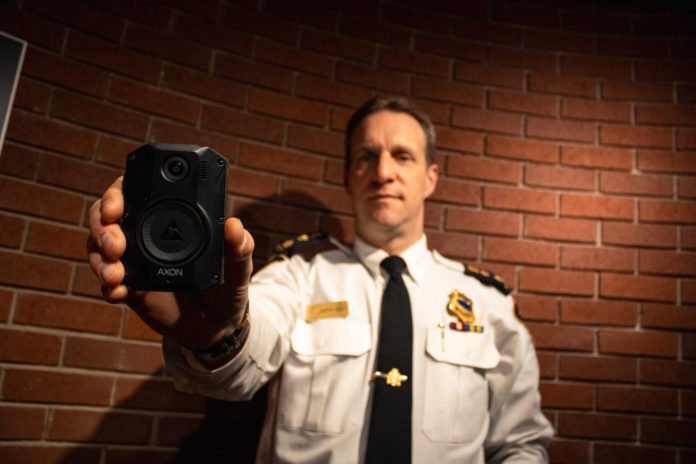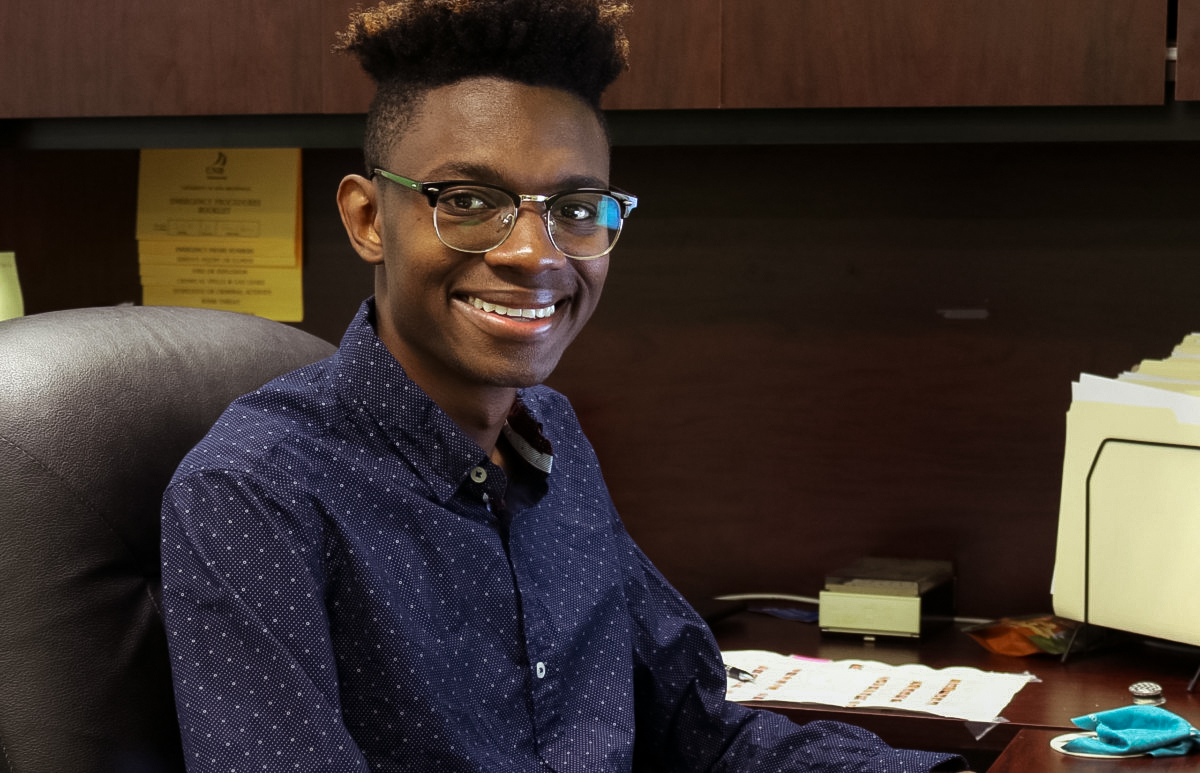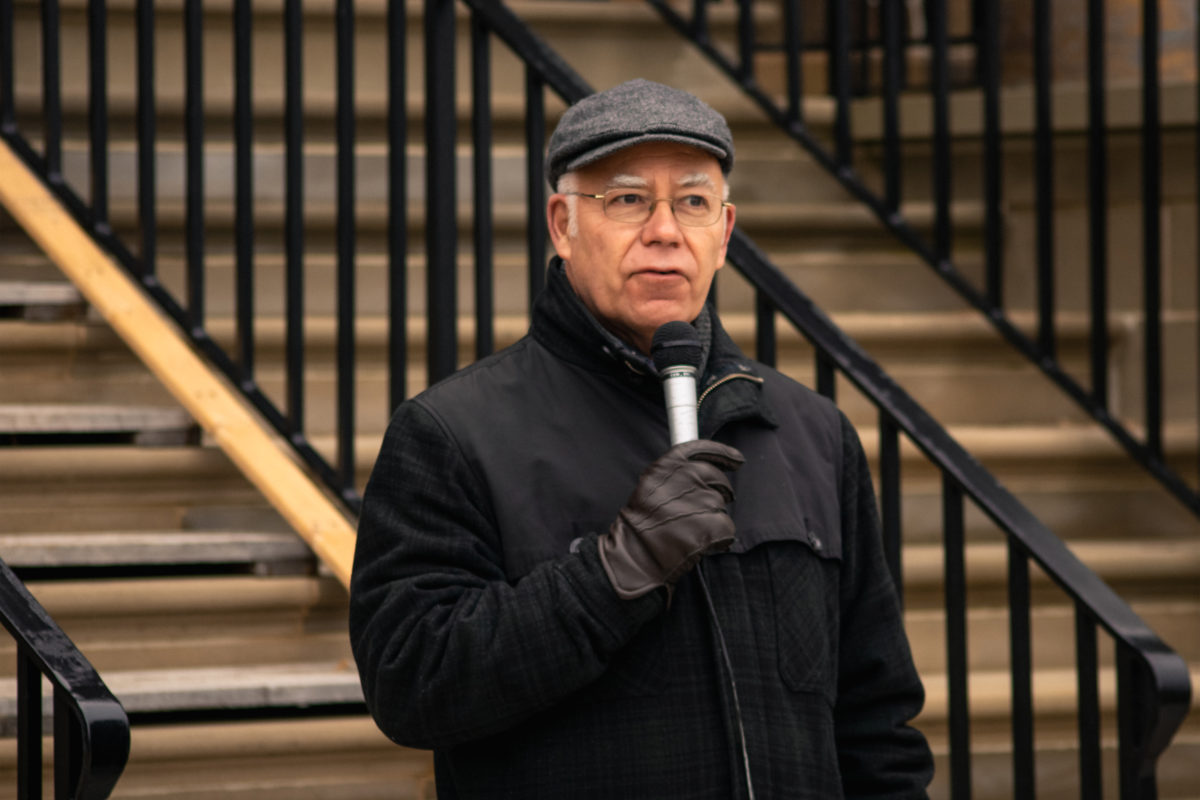

As law enforcement agencies in Canada and the United States move more into digital technology, the Fredericton Police are following suit and investing in this technology in body cameras.
The Fredericton Police are expanding their uses of body cameras to 12. They bought seven more body cameras to be used. This expansion of over $200,000 is part of a five-year contract renewal with the company Axon.
Husoni Raymond, the former St. Thomas University Students’ Union president and an organizer for Black Lives Matter Fredericton, said the city should be investing in people, not police.
“That money could’ve went into investing in communities, investing in mental health services [and] investing in social workers,” said Raymond. “These are things the city claims is outside their jurisdiction, but they can contribute to community safety in a variety of other ways rather than giving more money to police.”
This pilot project has been one of several that the Fredericton Police has been working on with Axon since 2017, testing various types of body cameras. The newest model they’ll use is the Axon Body 3, which features live streaming and GPS tracking when the camera is operating.
Axon Enterprise is an American-based company that develops technology and weapons products for militaries, law enforcement and civilians. Raymond said he has concerns over privacy with Axon storing data and recordings of people in vulnerable states.
“We’ve seen that body cameras have little to no effect on police accountability,” said Raymond. “That’s just saying that we want to capture the violence as it’s happening when we should focus on preventing it from happening in the first place.”

According to a study from 2015 on the use of body cameras on police officers for a year-long trial in Las Vegas, complaints and police use of force reduced. But Raymond said a more recent study in Canada told a different story. A year-long study on officers in Montreal concluded that body cameras had little impact on interventions and presented logistical challenges.
Raymond said police use of body cameras is just another reform Band-Aid.
“What [Black Lives Matter is] advocating for is enough of these Band-Aid, reformist solutions,” said Raymond.
While Raymond said he has concerns with privacy and body cameras, deputy police chief Martin Gaudet said he accepts that privacy will always be a concern in the digital age.
Gaudet has worked as an officer for 27 years and has been the deputy chief since 2015. He said the department is working with the privacy commission and are considering a privacy impact assessment to address these concerns.
“It’s the world we live in,” said Gaudet. “In our world, or I’ll speak for myself, safety trumps privacy.”
At the inception of their first pilot project in 2017, Gaudet said they reached out to the public for feedback. He said they reached out internally to officers to see if some were willing to use them.
One purpose of the use of body cameras is for collecting digital evidence. Another is for responses to mental health calls. Gaudet said the livestream feature was important because they can stream directly to the command post.
“This was a game-changer,” said Gaudet.
Digital evidence like body camera recordings will be submitted to platforms like evidence.ca, he said. That way, officers can submit digital evidence like body camera recordings and interviews to the Crown.


David Coon, New Brunswick Green Party leader and Fredericton-South MLA, said one aspect of the new cameras is two-way communication with officers and a mental health professional during a mental health call.
He said Saint John is taking a different approach to mental health calls by sending plain-clothed police officers instead of those in uniform. While there are mobile mental health crisis response teams in parts of the province, Coon said he and the Greens want to take that a step further.
“They should be turned into 24-hour first responders, so create a new category of first responders,” said Coon. “Like a paramedic who handles physical health, [mental health workers] would handle mental health calls and would only call in police assistance only in insecure situations.”
When arriving on the scene, Gaudet said officers would announce that they’re turning on their body cameras. He said there are protocols in place for situations when to turn on the cameras or not.
One situation that would require an officer to turn on their camera is being dispatched to a situation like a domestic violence call in progress or giving Charter of Rights notices. Gaudet said officers don’t turn the camera on during strip searches, but do at a domestic violence call. If the victim is not fully dressed or not comfortable, officers could turn the camera off at the request of the victim.
At the height of the George Floyd protests last year, Gaudet said he and the police community at large were told they weren’t the right people to respond to mental health calls. He said seeing more psychologists working with police is fantastic, but said the lack of resources and psychologists make things more difficult.
“I would love to continue to be part of those discussions.”
